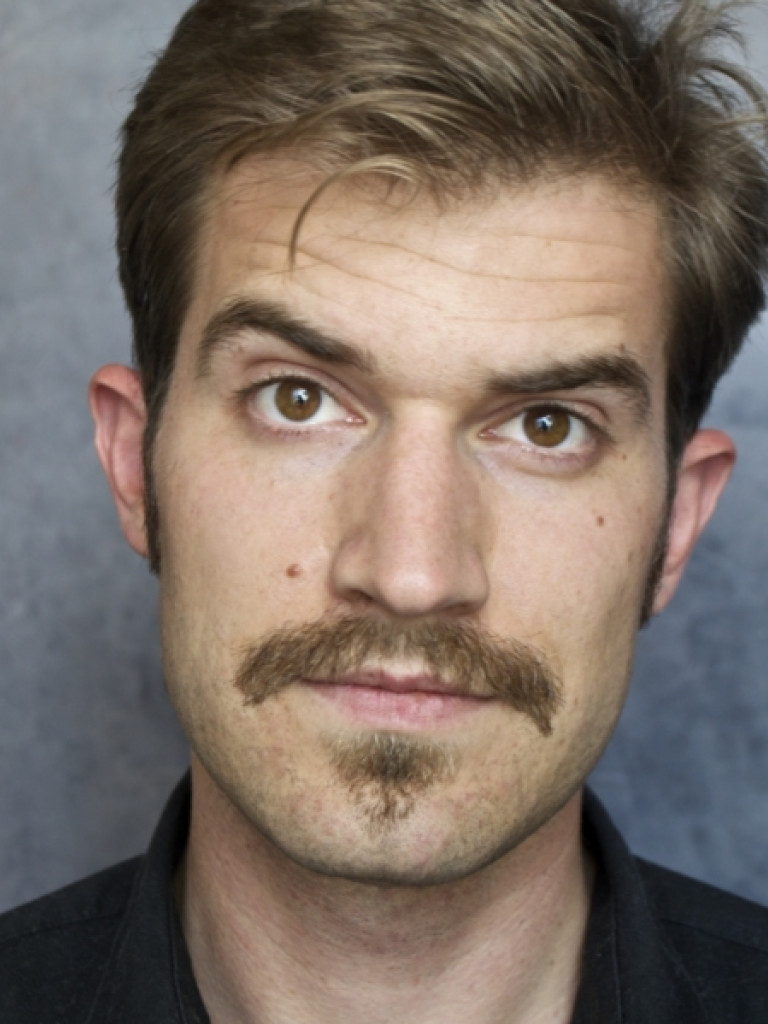
LUCAS LAURSEN
- 2017
- Press Fellow
Lucas is a journalist covering how people use science, markets and serendipity to test new ideas, with a special interest in the developing world. He writes for Scientific American, IEEE Spectrum, Sapiens, Rethink and many other magazines and has filed stories from over a dozen countries on five continents and from one ocean crossing. He has lived in and reported from Cambridge, UK; Zurich, Switzerland; Madrid, Spain; and Oaxaca, Mexico. 1. Why did you choose to become a science journalist? It wasn't really a conscious choice at first. As I was finishing my astronomy degree, I finally accepted that I was better at writing than at solving physics problems. But it took me ages to find something to write about. Then I met some very generous mentors who helped me see that I could cover science as a journalist and that I'd never run out of material. They taught me how to break news and tell stories. I guess somewhere in there I chose to keep being a science journalist. Since then I have gotten more interested in science policy and in what it takes to translate science research into human well-being, particularly in under-developed settings. 2. What role do science and science communication play in your country? In my two countries, the US and Spain, it's hard to understate how much science underpins the economies and quality of life--the same goes for pretty much all rich countries. As for science communication, there are many threads: researchers asking institutions to fund their work, companies trying to persuade the government to authorize research on, say, an experimental medicine, and all kinds of science institutions clamoring to the rest of us about how important their work is. There's also basic education in schools, universities, and museums that seeks to teach some version of the scientific consensus. Journalists can try to help citizens understand all the other threads of science communication. 3. What are the main challenges of science journalism in your country? I'll pick on Spain here. When I tell people in Spain that I'm a science journalist, they almost always ask if that means I do "divulgación" which I'd translate as "outreach." I think outreach is important, but it's just one of the threads I mention above. Science journalism can do more: it can equip readers of all types with the latest news they need to participate in the scientific community and shape how it does science. Many Spanish outlets are doing this and winning international prizes for it. But there's a lot of work for us to do. I'd like to encourage more Spaniards to bring their healthy skepticism of, say, politics or economics, to science. Sure, they should know that biologics are improving pharmaceutical products. But they should also know how companies distort research. To get there, us science journalists in Spain need to equip the public with the same skeptical mindset scientists cultivate. 4. Where do you see the big societal transformations in the future? What scientific research/discovery will change our world? If the history of science has taught us one thing, it's that we are abysmal predictors of when the fruits of science will ripen. Ask any venture capitalist or science foundation program manager. But for fun, I'll say that one big societal transformation seems to be that the political power of nation-states is moving upward, to international bodies, laterally, toward corporations and similar interest groups, and downward, toward self-organizing networks of citizens. It's making everything even more complex. 5. What book, movie or song has radically changed your perspective? And why? The Better Angels of Our Nature by Steven Pinker made me re-examine what science can tell us about our societies. It forced me to confront the very human bias toward reporting bad news. It's encouraged me to ask for evidence when I hear that violence is rising or some other measure of human well-being is going all wrong. It's also made me start asking what we can do at a societal level to harness new knowledge to improve well-being. This book, which straddles several fields, helped me see that the answers don't depend just on science - a lot of it has to do with how we blend science with social structures.